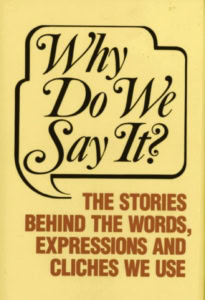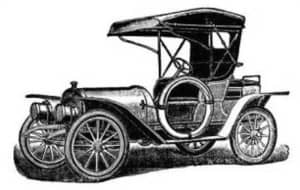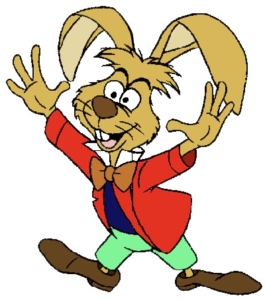Word Play: There’s a Word for That
by Tom Conger
 Words can be fun. Words can be frustrating. English words in particular, drawing from so many different sources, can be fascinating indeed. If there is a theme to this presentation, let’s essay—as a chronologically-gifted constituency—to focus on words which deal somewhat in the realm of geriatrics. For purposes of this exercise, let’s dispense with the words we once learned, which served us so well over so many long decades, and which have been appropriated by today’s young people to mean something entirely different than what we were taught. For this initial chapter, we are indebted to Why Do We Say It? by Castle Books, distributed by Barnes & Noble.
Words can be fun. Words can be frustrating. English words in particular, drawing from so many different sources, can be fascinating indeed. If there is a theme to this presentation, let’s essay—as a chronologically-gifted constituency—to focus on words which deal somewhat in the realm of geriatrics. For purposes of this exercise, let’s dispense with the words we once learned, which served us so well over so many long decades, and which have been appropriated by today’s young people to mean something entirely different than what we were taught. For this initial chapter, we are indebted to Why Do We Say It? by Castle Books, distributed by Barnes & Noble.
Charley Horse – sports slang for painful stiffness in the muscles, resulting from unaccustomed vigorous activity (reaching down to pull up one’s socks…): “common name for an old horse, particularly one afflicted with sweeny or other stiffness.”
D-Day – June 6, 1944: the D just stands for Day. “In order not to divulge the designated day of a military operation it was never written as a definite date but only as ‘D’; the hour was designated as ’H.’ ” And Hitler didn’t even know where the Allies would land . . .
Duck Soup – easy: “A puddle caused by rainfall will materialize without human effort…a project requiring no special effort.”
Fogey – old, behind the times: once a standard English word “Foggy” meaning fat, bloated, or “moss-grown.” “The Scots adopted the word as “fogey” and used it disrespectfully for a woefully chronologically-advanced auld fellow.
Gaffer – chronologically-advanced auld fellow: merely a contraction of “grandfather.”
Hep – savvy (“woke”): Army drill sergeants counting marching cadence call out “Hep! Hep!” (“Step! Step”). Recruits who learn to keep step (literally & figuratively) w/their mates are “hep” (aka “hip”).
Jalopy – dilapidated chronologically-enhanced automobile: rides rough like a horse = “gallop-y” (with a softened G, becomes jalopy).
Rumble Seat – outside seat: behind the body of the carriage, originally designed for servants; when sitting back there one could hear the rumble of the carriage as it rolled along.
 Tin Lizzie – cheap Ford: Fords were called “Lizzie” presumably due to their similarity to lizards—fast cars were “whizzers” and slow heaps were “lizards.” And thinnest of sheetmetal was used to make tin cans.
Tin Lizzie – cheap Ford: Fords were called “Lizzie” presumably due to their similarity to lizards—fast cars were “whizzers” and slow heaps were “lizards.” And thinnest of sheetmetal was used to make tin cans.
 March Hare – mad as: “March begins the rutting season for hares and the hares run about wildly at that time—apparently quite ‘mad.’ ”
March Hare – mad as: “March begins the rutting season for hares and the hares run about wildly at that time—apparently quite ‘mad.’ ”
Mud in Your Eye – a toast: to yourself, as in “I hope I beat you.” If the track for a horse race is muddy, the rider of the losing horse will get mud in his eye from the leader(s).
OK – all right: Presidential election of 1840, Van Buren was nicknamed “The Wizard of Kinderhook” after his birthplace Old Kinderhook. NYC support groups called themselves “The Democratic O.K. Club” and others followed suit, using the term “O.K” as a slogan, which became synonymous with stating they/their candidates were right on
Plus Fours – golfers’ knickers: ordinary knee-breeches were not full enough at the knees to allow a golf swing, so tailors added four inches to the length of the seam, allowing them to hang over the knees, giving the player enough slack. The tailor’s notation for this was “+4.”
Salad Days – a man’s youth: “when a man is young he’s ‘green’—and ‘greens’ go into making a salad.”
Speakeasy – illicit saloon: Irish origin. Raising a ruckus where liquor was sold contrary to Prohibition Law could alert the police, thus one had to “speak easy.”
Kick the Bucket – Celestial exit: one about to hang self would mount a bucket (or stool), affix the noose, then kick the bucket out from under = Aloha Nui . . .




Leave a Reply
Want to join the discussion?Feel free to contribute!